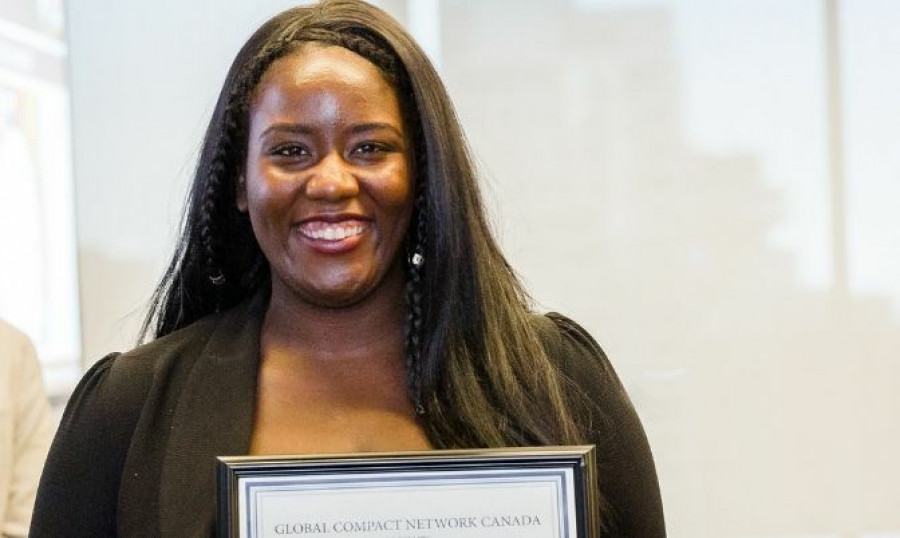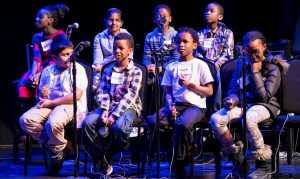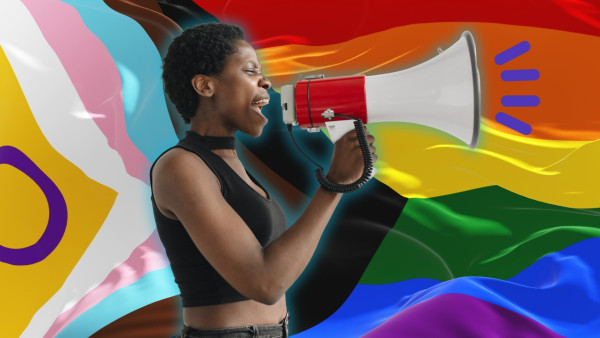Dilesha shares, “I struggled a lot with math because math was always politicized and wrought with shame. When I was in school, I was forced to stand up and solve a few mental math questions aloud to be allowed to go to recess. To a student with severe educational anxiety, this caused an incredible amount of discomfort.” After graduating from Centennial College and witnessing STEM programs that claimed they were catered to Black youth but weren’t created by Blacks or run by Blacks, she decided to found OSA.
OSA is the 2018 United Nations Sustainable Development Goals Leadership Award winner. The organization’s focus is on addressing the biases and barriers of accessibility to science, technology, engineering, and mathematics education for marginalized youth. Even though OSA’s focus is on girls and youth of colour, their programs are open to every child interested in STEM, creating an inclusive environment for learning. OSA is in alignment with the United Nations Sustainable Development Goals for Canada by focusing on Gender Equality, Reducing Inequalities, Quality Educations, and Partnership. OSA partners with schools and community programs across Ontario, impacting the community in various forms and platforms.
OSA aims to open the dialogue surrounding STEM academics and change the idea of STEM. “A lot of students view math as hard,” Dilesha says, which discourages them from learning more about a subject that is essentially connected to everything. The organization fills the void of STEM education for marginalized youth in Canada offering mentoring connections, transformative programming, information exchange, collaboration through strategic partnerships and workshops. In 2019 alone, OSA has had the opportunity to provide programming for over 200 youth. The age demographic for OSA is ages 7-14 but can provide resources for youth of all ages, thanks to their many great partners including the Jean Augustine Center and the STEMHub FoundationHub to provide accessible programming to youth. They also currently have a budding partnership with Spring Board Bay who gamifies a lot of the STEM knowledge on their website.
Dilesha notes she didn’t have anyone to advise her on resume building or course choices in post-secondary when she was growing up. She says kids need mentorship and the public needs to be more aware of how beneficial mentorship is to young people. Mentorship for youth of colour is particularly important to ensure these youth feel supported by their community. A recent article from Education Post titled “Black Boys Don’t Need More Discipline, They Need Mentors” expressed a similar perspective. The article insisted that when young Black boys engaged with adults that looked like them and listened to them, the boys’ behaviour changed in school. Other studies have shown similar findings--that when information taught was culturally appropriate, grades improved.
Because of this, Dilesha argues that the government needs to take into consideration the way they deliver the information being taught. “Canada claims to be multicultural, yet this sentiment is not reflected in the curriculum,” she says. She asserts that the government needs to be purposeful when involving diverse backgrounds into the process of the development and changes of the curriculum. She suggests that the government reach out to community leaders and programs and take more initiative when involving various ethnicities into the curriculum-building process.
When asked what advice she would give to educators, Dilesha answered, “Educators do a lot. They have a lot on their plate, and their day doesn’t end at 3 pm when the bell rings, so it’s hard to ask them to do more.” But she does think educators can improve upon their communication skills and techniques. If a teacher sees a disengaged student, Dilesha’s advice is for them to try and communicate with the student and to consider their relationships with their students as a partnership. She also encourages youth to build bonds with their teachers, professors, ask questions, and request resources when they need them.
OSA’s long-term vision is to scale its online platform so students all over the world can have accessible STEM educational resources. Dilesha hopes to continue to improve the accessibility of STEM resources so students don’t have to suffer like she did growing up. To learn more about OSA and their program offerings or to donate to invest in Canada’s future, check out their website at ouistem.com.
Kezia Royer Burkett is a creative freelance writer with a degree in communications and multimedia from McMaster University. When she is not writing she is finding inspiration living life, raising her son and spending time with friends and family.

 By Kezia Royer-Burkett
By Kezia Royer-Burkett 








